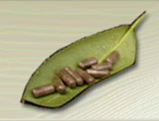 Loading... Please wait...
Loading... Please wait...An Ayurvedic Diet
Posted by Susan Bowes on 22nd Jun 2012
There are some basic points to know about the doshas and their strengths during the time and season cycles that can help with menu planning.
From an Ayurvedic perspective, the constitutions balance and imbalance with the change of seasons. These imbalances can be mitigated by simple shifts in diet and lifestyle. For example, as we move from the scorching summer heat to crisp, cool mornings and evenings of autumn, we are moving from a Pitta dominated season to one of Vata pre-eminence. Each season has one or more elements and doshas which predominate, and in autumn it is Vata which is rising. The vata imbalances such as dry skin, achy joints, digestive gas, and nervous disorders are more noticeable as the weather grows cooler. Vata is an essential part of all of us. Pitta and Kapha types may breathe a sigh of relief that the worst of the heat and humidity of summer are over, however, Vata dominant people may look with some regret at the passing of summer, with its warmth and moisture. As we move into winter, where Kapha predominates strongly, all the doshas must work together to preserve health and vitality. Kapha is the endurance which enables us to move through this season, but it needs the qualities of Vata to provide light and movement, and Pitta which helps provide initiative, without which, we may feel like retiring to our dens and sleeping until spring comes! Kapha helps promote growth, while it strengthens and enhances our natural immunity and resistance to disease. It lubricates joints, moisturizes the skin and strengthens the memory. While Vata encourages breakdown of tissues and Pitta supports their maintenance, Kapha is the builder.
The messages our bodies can learn from the seasons changing will support our healing and provide an inner alignment with the cycles of the earth. With our modern lifestyles, always rushing and looking for shortcuts, sometimes the common sense stemming from the changing of seasons is forgotten. With increasing awareness, we may find that it becomes second nature to have that warm pumpkin dish in fall, and the cool mint tea in the summer.
At dawn, or around 6 a.m., Kapha is just beginning to accumulate and continues to do so until about 10 a.m. For people with strong Kapha tendencies, this is a time to eat relatively lightly, starting the day with fresh fruit or juice.Vata types may want to vary this by eating a more ample breakfast, adding grains with a little sweetener. Since Pitta rises around 10 a.m. in the morning, this may be the time when those with high Pitta may want to have their breakfast, as they may not feel hunger arise until that time.
In Ayurveda the most substantial meal is usually lunch, which is best eaten between 10:30 a.m. and 12:30 p.m. Some Vata and Pitta types find that a snack around 3 or 4 p.m. helps ground them and keeps their energy running more smoothly until dinnertime. Such a snack would be superfluous for those with high Kapha. Vata predominates from 2 p.m. until about 6 p.m., when Kapha again begins to rise. Kapha is not a stimulating time for digestion, so eating earlier for Kapha types and a light dinner helps to balance high Kapha. Vata types may find themselves eating a smaller meal at dusk than dawn, and Pitta types can eat a larger meal at dinnertime with their usual hearty appetites, because from 10 p.m. to 2 a.m. Pitta again predominates.
Often, when we simply allow ourselves to accept information offered by our bodies, something valuable can happen. Consider cravings that we all have at one time or another. As an example, sometimes we will crave chocolate out of the blue. What many people don’t acknowledge is that chocolate is an exceptionally high source of magnesium. It also has a powerfully relaxing effect on the body. A craving for chocolate could indicate the body’s need for magnesium. Here we can see that sensation offers information, and how we use this information is up to us.
Everything we need to know in order to keep our bodies in balance with the earth is available to us through the ancient wisdom of Ayurveda, and by understanding your basic constitution and condition, you can utilize nutrition as a deep source of healing.















